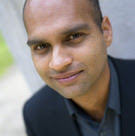Nurturing civil society leadership and action
Open Space is a civil society and youth outreach initiative based in
Pune. OS encourages dialogue, debate and citizens action around social
justice and development issues by engaging urban middle class
citizens– particularly youth -- through films, literature, art,
music, college festivals, lectures, workshops etc.
We are now taking the OS process to other cities through the Open
Space fellowships. On offer are full-time fellowships for a period of
12 months each to be awarded to social entrepreneurs in cities other
than Pune.
We are looking for individuals who are well-informed on – and
committed to -- social justice and development issues, with a
background in the social sciences/human rights/development/media or
allied fields. The Fellows should be dynamic, energetic, resourceful
and good at communications, moderating discussions, training and
capacity-building. A passion for the arts and ideas is required,
since OS programmes and processes centre around popular culture,
literature, cinema etc. Fellows should be well-networked with CSOs,
educational institutions and community groups in their own city.
We're looking for applications from state capitals and the
mini-metros, though applications from the five major metropolitan
cities will also be considered if they focus on unique outreach
processes and suburban and fringe areas of their cities.
Over the 12-month period, several regular networks, partnerships,
processes, activities and forums should have been initiated and
publicised under the fellowship that should continue to operate and
be strengthened on a voluntary basis by citizens after the 12-month
period.
Applicants for the fellowship are invited to send in their CVs and a
detailed concept note expanding on 1) their suitability for, and
interest in, these Fellowships; 2) the social justice/development
issues most integral to their cities which they would like to work on
in the course of this fellowship; 3) strategies they would employ for
outreach, including likely partners and networks in their cities.
Open Space fellowships will be awarded to individuals preferably
below the age of 40.
The fellowship carries a monthly honorarium of Rs 20,000, inclusive
of communication and conveyance costs incurred by the Fellows.
Log on to http://www.openspaceindia.org
for a detailed note on the fellowships and to find out more about
Open Space. Then email your applications, before October 31, 2008, to
openspacefellowships@infochangeindia.org and cc them to
rakesh@openspaceindia.org
Open Space is an initiative of the Centre for Communication and
Development Studies, Pune, a social change resource centre that uses
communications to strengthen civil society and citizens' action for
social justice, human rights, sustainable development and accountable
governance. CCDS also manages http://www.infochangeindia.org
, India's popular and credible online resource base on social
justice and development issues. For more information on CCDS and Open
Space log on to www.openspaceindia.org
, www.ccds.in
and www.infochangeindia.org
.
Open Space
301, Kanchanjunga Building, Kanchan Gully
Off Law College Road,
Pune 411 004
Telephone: 020-26852845/30222156


